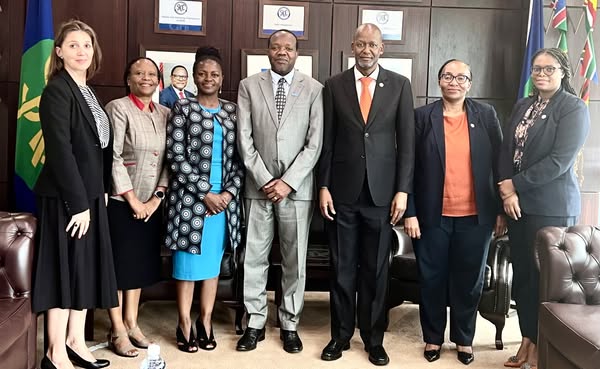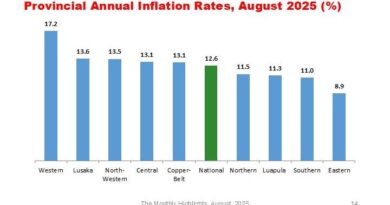SADC Executive Secretary Engages WHO Representative on Strengthening Regional Health Collaboration
His Excellency Mr. Elias M. Magosi, Executive Secretary of the Southern African Development Community (SADC), met with Dr. Fabian Ndenzako, the World Health Organization (WHO) Representative to Botswana and SADC, to discuss strengthening regional health sector collaboration.
The meeting, which took place at the SADC Secretariat, marked Dr. Ndenzako’s first official engagement with SADC following his recent appointment. It provided a platform to review shared health priorities and explore the renewal of the Memorandum of Understanding (MoU) between SADC and WHO, which had lapsed.
H.E. Magosi congratulated Dr. Ndenzako on his appointment and commended WHO’s contributions at both national and regional levels. He acknowledged WHO’s role in supporting SADC Member States, particularly in navigating post-COVID-19 health challenges and addressing climate-related crises that impact socio-economic development.
Dr. Ndenzako reaffirmed WHO’s commitment to strengthening public health in the region. He highlighted the growing burden of communicable and non-communicable diseases and stressed the need for enhanced technical and financial support for both SADC Member States and the Secretariat.
He also emphasized WHO’s dedication to health advocacy, capacity building, and policy development, urging a unified regional effort to mobilize resources for pandemic preparedness and sustainable health financing.
The meeting reviewed the current health landscape in the SADC region, noting challenges such as declining donor funding, disease outbreaks, and the need for stronger local health product manufacturing. Specific diseases discussed included HIV/AIDS, cholera, malaria, Mpox, and Marburg virus disease. Progress in malaria control was acknowledged, with malaria-related deaths declining from 42,867 in 2022 to 38,740 in 2023.
However, recent climate-induced weather changes pose a risk of reversing gains in malaria elimination, as some SADC Member States have recently declared malaria outbreaks.
The longstanding SADC-WHO partnership has played a crucial role in regional health initiatives, including the SADC Human Resources for Health Strategy and pandemic response efforts, particularly during the COVID-19 crisis. The meeting reaffirmed the commitment to enhancing pandemic preparedness, health resilience, and sustainable healthcare investment in the region.
Both parties agreed to continue collaborative efforts to address pressing health challenges and drive policies that improve public health outcomes across SADC Member States.



